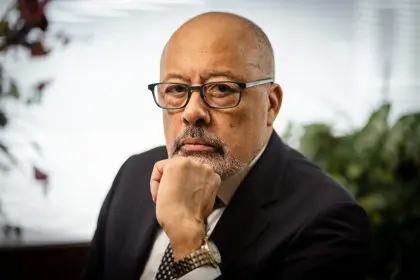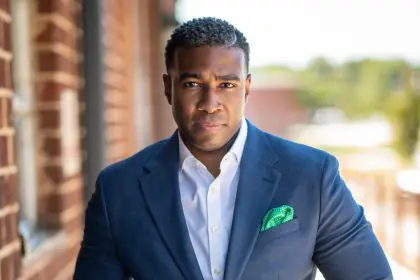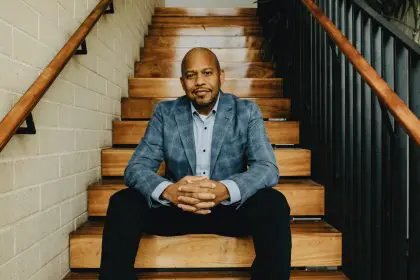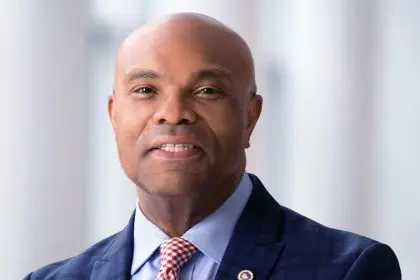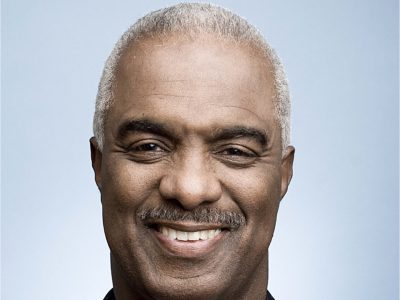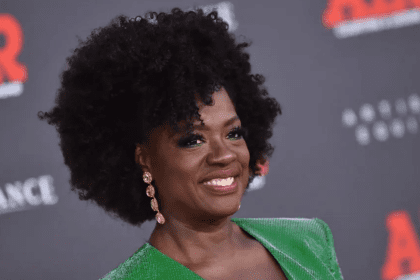In the latest episode of “Equity in Focus,” Kevin E. Hooks engages in a thought-provoking conversation with Andrew Cooper, author of The Ethical Imperative: Leading with Conscience to Shape the Future of Business. This discussion dives deep into how ethical leadership is not only reshaping corporate landscapes but also paving the way for a more equitable and sustainable future.
The unlikely journey into patent law
Andrew Cooper’s path into the world of patent law is anything but conventional. As a Black man in a predominantly white field, Cooper’s entry into the space was marked by a series of unexpected opportunities. Despite initially lacking a background in the sciences — often considered a prerequisite for patent law — Cooper’s openness to new experiences and willingness to take direction from those more knowledgeable led him to a successful career in a field that many might have found impenetrable.
During the interview, Cooper recalls how a chance encounter with a Black intellectual property lawyer during an internship at Coca-Cola steered him toward patent law.
“No one ever tells us about these spaces,” he reflects, highlighting the lack of representation and awareness that often keeps minorities out of certain professional realms. His story is a powerful testament to the importance of mentorship and being open to paths less traveled.
The birth of The Ethical Imperative
Cooper’s book, The Ethical Imperative, is more than just a reflection on his career; it’s a clarion call for a new kind of leadership in corporate America.
“I’ve wanted to bring to the forefront a millennial and Black perspective on what leadership can look like in large and competent organizations for a long time,” Cooper explains.
His experiences — from walking into rooms where no one looked like him to leading critical teams during the COVID-19 pandemic — inspired him to write a book that demystifies what happens behind closed doors in the corporate world.
Cooper’s time as general cunsel at UPS Airlines, particularly during the pandemic, was a crucible of leadership. Tasked with overseeing the legal and regulatory team during a global health crisis, Cooper led with a focus on caring for his team and adapting to unprecedented challenges. This period reinforced his belief that leadership must be rooted in empathy and a genuine concern for people — a theme central to his book.
Ethical leadership: A historical and modern imperative
Cooper’s discussion with Hooks delves into the historical evolution of corporate leadership. He contrasts the community-focused leadership styles of early 20th-century CEOs like Herbert Dow and David Packard with the profit-driven approaches of more recent leaders like Albert Dunlap. According to Cooper, the shift from valuing employees and communities to prioritizing shareholder value is a direct result of societal changes, including the Civil Rights Movement and the advent of diversity and inclusion efforts.
For Cooper, the future of leadership lies in a return to these earlier values. He argues that organizations that invest in their communities and care for their employees’ well-being outperform those that are solely profit-driven. This philosophy is one of the “four moral imperatives” outlined in his book, which also include dynamic relationship investment, understanding the deeper narratives within organizations, prioritizing efficiency for the sake of employees and building a reliable brand.
Building the next generation of conscientious leaders
The conversation closes with Cooper offering advice to young professionals who aspire to become conscientious leaders. His guidance is simple yet profound: “Don’t abandon who you are.”
He stresses the importance of authenticity in the workplace while acknowledging the need for adaptability. Cooper encourages young leaders to find their “pack” — a community or group of mentors who will support and uplift them.
“Ethical leadership is not just a choice, but a necessity for shaping a better future,” Hooks concludes.
Cooper’s insights — grounded in his unique experiences and forward-thinking philosophy — are a powerful reminder of the impact that values-driven leadership can have on both organizations and society at large.
AI assisted in summarizing this episode of Equity in Focus.


